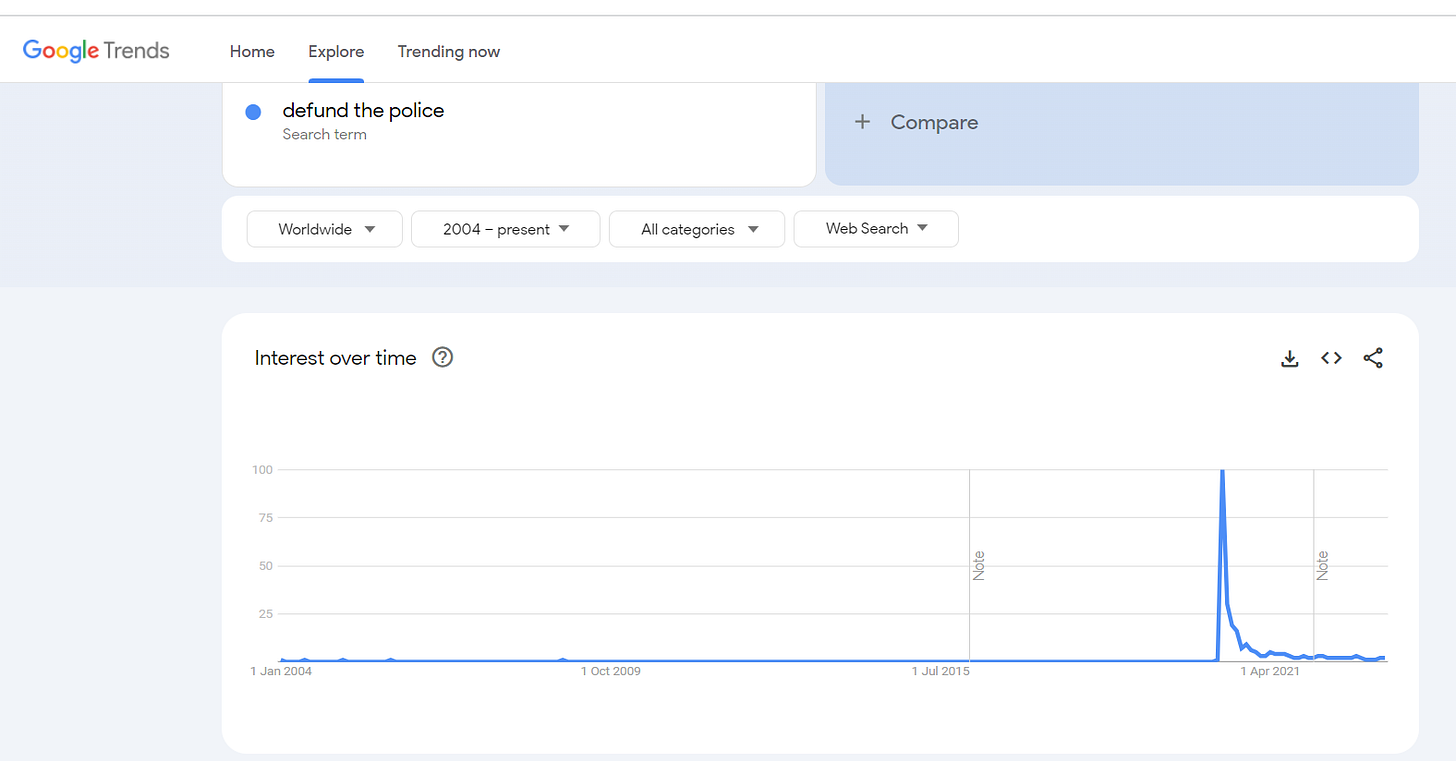Daily Balajisms – Social scam
The current thing is like a pump-and-dump scheme.
Balaji Srinivasan says the current thing is like a social scam, very similar to pump-and-dump schemes for stocks or crypto. If you search for some of the recent current things on Google Trends, you see a ski-sloped graph.
Social scams are in fact worse than financial scams, says Balaji. Because they are not limited to people who entered the arena willingly, but affect everyone. “You can’t cheat an honest man”, as the saying goes. Often people want to get rich fast, or there is an adversarial selection happening.
While financial scams are bad, social scams are dangerous and destroy trust in society. People are now more immune to current things, but there is a price to that, says Balaji. We live in much lower trust society, where you can’t trust the news, because they are tribal.
Social scams affect people globally. There were “mostly peaceful” BLM protests also in Britain, where people were shouting “hands up, don’t shoot” slogans at unarmed British policemen.
Michael Solana has a good article on the dangers of mass social hysteria in times of social media, titled JUMP.
Balaji says that the current establishment is the opposite of an ideal venture capitalist. They are very bad at spotting weak signals and capital allocation. They can only see phenomena that are the size of a political constituency, 10-50% and cannot pick up weak signals that are affecting like 0.01% of population but have a potential to go vertical.
They are also employing the school of fish strategy – repeating the current thing so no one is singled out for an attack. This way, the members of the old establishment can preserve status, but at the expense of sounding all same and destroying societal trust.
The NPCs fill be disrupted by AI, an ultimate NPC, says Balaji. Blue checks are the new blue collars. It is much easier for a ChatGPT to disrupt NYT journalists than Substack writers, who need to preserve individual point of view to attract readership.
It is partially the fault of editors who take out the individuality of journalists and impose a uniform style. Journalists at prestige outlets write for their peers, other journalists, forming a monoculture.
Timur Kuran has a concept of preference falsification. There weren’t many dissidents in Czechoslovakia before the Velvet Revolution of November 1989. And few weeks later, when an American journalist wanted to do an interview with a Communist, he couldn’t find one.
Cloud cartography is very different from our geographic intuitions. A new continent can suddenly appear out of nowhere right next to you. It is like Solana emerging next to Ethereum. It is governed by a geodesic distance between two nodes on a graph.
Balaji says you need to bully-proof your social supply chain and chose your partners and coworkers well. We live in a social war, where the aim is to invade minds, as opposed to territory, and to cancel certain nodes in a network or turn them from red to blue, or vice versa.
If you are part of the technologically progressive orange tribe, sometimes called also gray tribe or purple tribe – you are distant somewhat from the legacy red-blue division of the US, or the NYT vs CCP division internationally.
Balaji sees three main power attractors today as NYT vs CCP vs BTC. Or soft power vs hard power vs smart power. He is against maximalists of all kinds and proposes optimalism instead.
Social scams in the age of twitter maximalism are quite dangerous. I wrote on how the digital authoritarianism of CCP, if unchecked, can lead to digital lockdowns, or what John Robb calls the Long Night scenario. The bitcoin maximalism can lead to a Mad Max world. And the NYT/woke maximalism, let loose on twitter, can lead to a doom scenario I call the Nuclear Yolocaust Times.

